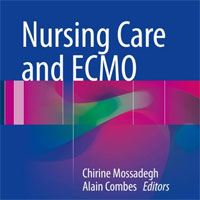Tag: antibiotics
Bad news for sepsis-3.0: qSOFA fails validation
Sepsis 3.0 replaced the SIRS criteria with a new risk-stratification tool, qSOFA. qSOFA was initially developed within the Sepsis-3 publication itself. Until now, qSOFA has never been validated. The value of qSOFA vs. SIRS... read more

Disruption of the microbiota across multiple body sites in critically ill children
Microbiota in critically ill children differs sharply from the microbiota of healthy children and adults. Acknowledgement of dysbiosis associated with critical illness could provide opportunities to modulate the microbiota... read more

Antibiotic Resistance just became more complex
Bacteria that are susceptible to antibiotics can survive when enough resistant cells around them are expressing an antibiotic-deactivating factor. This new take on how the microbial context can compromise antibiotic therapy.... read more

Tackling Antimicrobial Resistance
Antimicrobial resistance happens when bugs, like bacteria, fungi or viruses, change, or evolve, when they’re exposed to drugs, like antibiotics, antifungals, or antivirals. Bugs that develop antimicrobial resistance are... read more

Bacteriophages may harbor antibiotic resistance genes
Scientists at the Catalan Institute for Water Research have carried out a comprehensive analysis of several viromes from different habitats to explore whether bacteriophages (viruses that infect bacteria) harbor antibiotic... read more
Mild electric e-scaffold disrupts bacterial biofilms
Researchers at Washington State University (Spokane, WA, USA) used an e-scaffold made out of conductive carbon fabric and a mild electrical current to produce a low, constant concentration of hydrogen peroxide (H2O2, an effective... read more

Non-antibiotic treatments for bacterial diseases in an antibiotic resistance era
The progressive spread of antibiotic resistance genes is forcing us to reconsider our treatment options against some bacterial pathogens. Treating bacterial infections will likely become more challenging in the future. We... read more

Plazomicin Succeeds in Phase 3 cUTI and CRE Trial
Plazomicin an antibiotic being developed to fight multidrug-resistant bacterial infections, has met the primary objective of noninferiority compared with meropenem in a phase 3 registration trial among patients with complicated... read more

Antibiotic therapy advances in the critically ill
Key issues related to antibiotic management in the critically ill, including problems associated with timing, duration, and dosing of antibiotics. The authors highlighted the importance of early diagnosis of infection and... read more
Researchers develop novel wound-healing technology
A WSU research team has successfully used a mild electric current to take on and beat drug-resistant bacterial infections, a technology that may eventually be used to treat chronic wound infections.... read more

Adherence to guidelines reduces catheter-associated UTIs
Adherence to CDC guidelines for the placement, maintenance and removal of catheters and American College of Critical Care Medicine and Infectious Disease Society of America guidelines for evaluating fever in a critically... read more
How to prevent spread of the skin infection impetigo
Impetigo is a contagious skin infection that's preventable and can be treated with antibiotics, the U.S. Food and Drug Administration says. Impetigo can strike anytime but is more common during warm weather months. More... read more

Study Examines Rates, Causes of ED Visits for Adverse Drug Events
The prevalence of emergency department (ED) visits for adverse drug events (ADEs) in the United States was estimated to be four per 1,000 individuals in 2013 and 2014, and the most common drug classes involved were anticoagulants,... read more

Bacteriophages cure bacterial infections
Phage therapy may be a solution to treating infections caused by antibiotic-resistant bacteria. Since 2013, researchers at the University of Helsinki in Finland have collected bacteriophages to combat antibiotic-resistant... read more








